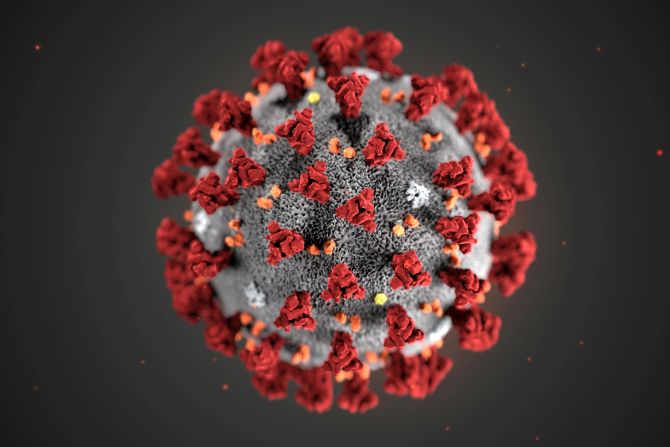'Mutated Covid virus could break through masks'
September 24, 2020 10:49

Houston researchers have unveiled a study of over 5,000 genetic sequences of coronavirus which reveals the pathogen's virus's continuous accumulation of mutations.
The study, released on Wednesday, however, does not conclude that these mutations made the virus deadlier or changed clinical outcomes. According to scientists, all the viruses accumulate genetic mutations and most of them are insignificant, The Washington Post reported.
Study author James Musser of Houston Methodist Hospital said that coronaviruses like SARS-CoV-2 are relatively stable as viruses go since they have a proofreading mechanism as they replicate.
"But every mutation is a roll of the dice, and with transmission so widespread in the US -- which continues to see tens of thousands of new, confirmed infections daily -- the virus has had abundant opportunities to change, potentially with troublesome consequences," Musser said.
"We have given this virus a lot of chances. There is a huge population size out there right now," he added.
Several scientists from Weill Cornell Medicine, the University of Chicago, Argonne National Laboratory and Austin's University of Texas also contributed to the research.
The study, which has not been peer-reviewed, appears to be the largest single aggregation of genetic sequences of the virus in the US as of now. Last month, a study by UK scientists said a mutation that changes the structure of the "spike protein" on the virus's surface may be driving the outsized spread of that particular strain, according to The Washington Post.
According to the new Houston study, the findings pointed out the strong possibility that the virus, which moved through the population, became more transmissible, and this "may have implications for our ability to control it", said David Morens, a virologist at the National Institute of Allergy and Infectious Diseases. Morens said it is a single study and "you do not want to over-interpret what this means."
However, the virologist stated that the virus could be responding potentially through random mutations to such interventions as social distancing and wearing of masks.
"Wearing masks, washing our hands, all those things are barriers to transmissibility, or contagion, but as the virus becomes more contagious it statistically is better at getting around those barriers," Morens said, adding it could have implications regarding the formulation of vaccines.
The virus could be under selective pressure to evade the human immune response as people gain immunity either through infections or a vaccine.
"Although we do not know yet, it is well within the realm of possibility that this coronavirus, when our population-level immunity gets high enough, this coronavirus will find a way to get around our immunity. If that happened, we would be in the same situation as with flu. We will have to chase the virus and as it mutates, we will have to tinker with our vaccine," Morens said





 © 2024 Rediff.com -
© 2024 Rediff.com -